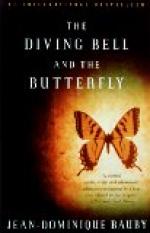That pleased the little fellow. The bargain was struck. Mr. Abbott’s book was bought, and the boy left the store, and ran home.
I think it was about a week after that, or it might have been a little longer, that I heard my name spoken, as I was sitting at my desk. I turned around, and, sure enough, there was the identical boy with whom I had made the trade at the book store.
“Well, my little fellow,” I said, “you’ve got sick of your bargain, eh?” “No, sir,” he said, “I’m glad I made it;” and he proceeded to tell me his errand. It seemed that he had been so pleased with the book, that he “wanted a few more of the same sort,” as the razor strop man says; and his father had told him that he might come to me, ask me to get all the Lucy books for him.
Now you see how it was with that little fellow, before he read the book I gave him. He had got the notion that a child’s book could not be amusing—could not be worth reading—unless it was filled with such nonsense as there was in the “funny book” he called for. He had not got a taste for reading anything else. As soon as he did get such a taste, he liked that kind of reading the best; because, besides making him laugh a little now and then, it put some thoughts into his head—gave him some hints which would be worth something to him in after life.
Now, I presume there are a great many boys and girls, who love to read such nonsense as one finds in comic almanacs, and books like “Bluebeard,” and “Jack the Giant Killer,” but who, like the youth I met in the book store, could very easily learn to like useful books just as well, and better too, if they would only take them up, and read them.
Why, my little friends, a book need not be dull and dry, because it is not all nonsense. Uncle Frank don’t mean to have a long face on, when he writes for young people. He believes in laughing. He likes to laugh himself, and he likes to see his young friends laugh, too, sometimes.
I hope, indeed, that you will find this little book amusing, as well as useful; though I should be very sorry if it were not useful, as well as amusing.
[Illustration: THE SPIDER’S INVITATION.]
III.
THE SCHEMING SPIDER.
A FABLE FOR MANY IN GENERAL, AND A FEW IN PARTICULAR.
I.
A bee who had chased after
pleasure all day,
And homeward was lazily wending
his way,
Fell in with a Spider, who
called to the Bee:
“Good evening!
I trust you are well,” said he.
II.
The bee was quite happy to
stop awhile there—
He always had leisure enough
and to spare—
“Good day, Mr. Spider,”
he said, with a bow,
“I thank you, I feel
rather poorly, just now.”
III.
“’Tis nothing
but work, with all one’s might—
’Tis nothing but work,
from morning till night.
I wish I were dead, Mr. Spider;
you know
I might as well die as to
drag along so.”




